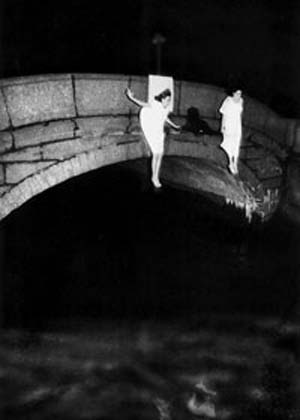19/9/2002
Baltic Babel
Rooseum, Malmo
Avanto - Helsinki Media Festival, Copenhagen Free University, Factory of Found Clothes, Foksal Gallery Foundation, Involved, Make it Happen, Valie Export Society, Primitive/art bureau OPEN

Baltic Babel is a large-scale group project
about art and the new Baltic society that
might now be in development. 9
independent, innovative organisations,
groups or activities have been invited
from the watershed Baltic cities of
Copenhagen, Stockholm, Helsinki, Tallinn,
Riga, Vilnius, St Petersburg and Warsaw.
These organisations are concerned with
art and culture though they could also be
involved in other independent political, or social activities.
Such groups of artists have emerged as the key force in
art making as artists have developed alternative strategies
to negotiate a different basis for making institutions,
questioning the relationship between art and society and
reflecting the position of art in relation to globalism. The
huge political changes that have occurred around the
Baltic in the past 12 years have effected art and its
possibilities. Young artists want to instigate independent
alternative spaces so that they can continue to exist in
the places to which they are committed without leaving
for the presumed centres or being dominated by the
market and central institutions. This development is a very
beautiful metaphor for the power of negotiation between
globalised economic power and all kinds of effort to provide
alternative solutions and local responses.
Independent galleries, artists’ groups, alternative film
festivals, office based urban projects and research
organisations will be shown in a series of different
architectural structures in the main Rooseum hall. They
have each determined the content of the structure
themselves, at times inviting other collaborators or artists
with whom they have already worked. These projects will
vary from documentary films, a music market, a shop, a
bar, a magazine wall, slide and video presentations as well
as curated exhibitions and performances. The idea for the
presentation takes its lead from the design of the 2002
Gwangju Biennale in Korea, where groups from all over Asia
and Europe were invited. For a smaller geographic area, we
hope Baltic Babel will create the same sense of energy and
capture something of the specific atmosphere of each
city.
The idea is to bring to the Öresund region models for
independent action connecting art and society and to
offer our audiences a chance to view regional visual
culture through the eyes of people based in those
locations. We might imagine that the emotional ‘map in the
head’ that Malmö citizens carry with them could ultimately
shift, reflecting a geographic reality that Warsaw or Tallinn
are closer to us than Paris or London.
The exhibition will also explore the nature of interregional
politics and begin the development of a serious network
across the region. It should be an invitation to re-imagine
our region in the light of its visual culture and to see what
and how the differences across the region add creativity
to its complexity and support or challenge the possibility of
a new Baltic 'union'. It will also be a compellingly instant
trip to specific cities in the region, using the visual as a
point of entry into widely different local cultures. In the
microcinema downstairs, we have also made a selection of
films and art videos made by individual artists from the
region that focus on social history and the urban
environment in different cities.
Baltic Babel will question the meaning of cultural globalism
and suggest interchange - exchange between equal
partners - as a more compelling and relevant model. It will
provide a ready-made network for the region to build on in
the future as well as link various local organisations
together for the first time. Given some current political and
cultural trends in our region, its cultural institutions have a
responsibility to promote the fundamental value of cultural
and linguistic difference for all societies. Only on the basis
of mutual respect can we expect globalisation to describe
anything other than an exploitative economic system.
The mix of organisations include various models of
practice. They will all be grounded in visual cultural
practice in its broadest sense and will bring the energy of
difference and discourse to the whole exhibition.
For the visitors to Baltic Babel, we hope that the
experience of the exhibition will encourage a reassessment
of our international outlook from the Öresund region. The
ancient Tower of Babel was built to reach heaven and
resulted in the apparent curse of human linguistic
diversity. This Baltic Babel is a more horizontal proposition.
It is a way of celebrating differences while trying to reach
another level of mutual understanding - ambitious not to
reach heaven but to meet each other. Baltic Babel is part
of Kulturbro 2002, A Biennal of Art and Culture in the
Øresund Region.
Rooseum Center for Contemporary Art, Gasverksgatan 22 203 12 Malmö Sweden



